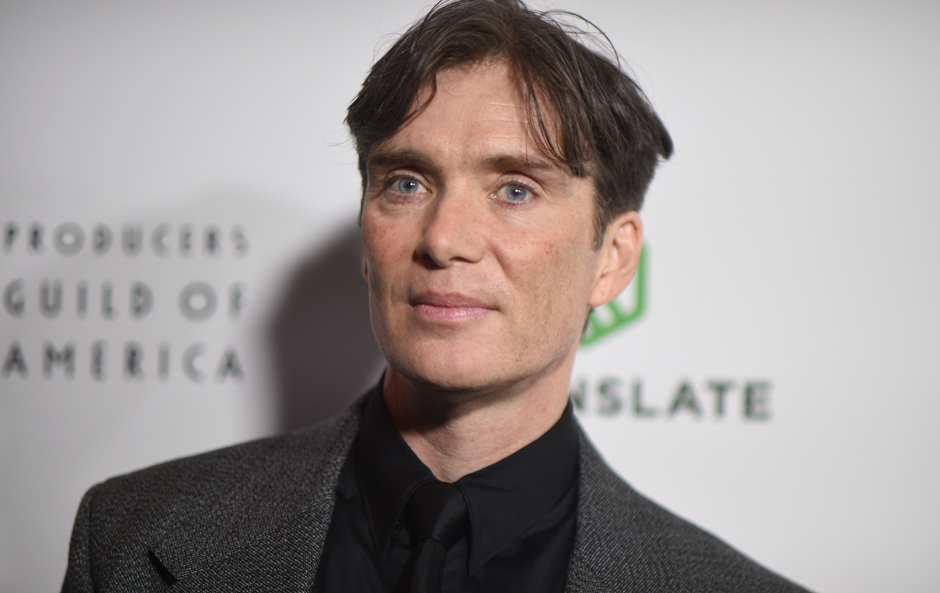Cillian Murphy, a leading candidate for best actor in the Oscars this weekend, spent six months preparing for his role in “Oppenheimer.”
To embody “the father of the atomic bomb,” Murphy read biographies, met with historians, learned Dutch to present a lecture, worked with dialect coaches to prefect speech patterns, and shed 28 pounds to achieve Oppenheimer’s silhouette physique.
“An actor’s objective is to embody their character, undergoing a transformative process that involves various preparations—physical, mental, and occasionally incorporating special effects,” said Konstantia Kontaxis, professor and chair of the University of Miami School of Communication’s Department of Cinematic Arts.
Murphy and actors like Daniel Day Lewis undergo an almost physical transformation in their intent to embody a historic character as accurately as possible, noted Kontaxis, a filmmaker and curator.

“The demanding nature of the process can sometimes take its toll. This is why actors are truly artists, blessed with remarkable gifts and talents,” she said. “Hopefully, actors have the capacity and resilience to achieve a full transformation. When viewers see Oppenheimer instead of Cillian Murphy on screen, it signals the actor's accomplishment and the director's skill in guiding that portrayal.”
Maha McCain, assistant professor in the Department of Theatre Arts in the College of Arts and Sciences, celebrated actors at the pinnacles of their careers like Murphy and Cate Blanchett, who learned German and to conduct a symphony orchestra in her role that won best actress in 2023, but highlighted that most actors don’t enjoy the same luxury of time and studio resources to prepare for their roles.
“If you’re an actor in New York City, you may have time but not money. So, you’re going to have to figure out ‘how am I going to learn this?’ You have access to YouTube or you can practice piano or learn Dutch on Duolingo,” she said.
McCain stressed that there’s no generalized preparation for actors. Each will approach their task in their own way and based on how they’re taught. Yet thorough understanding of the script—breaking it down for objective, tactic, action, and subtext—is essential.
“Any actor should be doing that. For me, if I don’t know what the play is about, if I don’t have a background on my character, if I haven’t gone through and done a thorough analysis, then I can’t do my job,” said McCain, who performed in the University production of “The Wolves” and has a decade of experience as a professional theater and television actor.
When cast in a role that requires the demonstration of certain skills, actors must be realistic about their time and skill level.
“For ‘Maestro,’ people talked about Bradley Cooper practicing for years to learn to conduct [as Leonard Bernstein] and to try to match it perfectly. Are you trying to match something or conduct a piece—there’s a fine line,” McCain noted.
“Your job as an actor is to make the use of those skills seem flawless. If your character is supposed to play the piano, but you don’t play the piano outside of ‘CHopstix,’ then you have the option of going to the director and saying: ‘I can learn for this in the amount of time from the moment I’m cast until the play is supposed to go up,’ or ‘this is going to be impossible for me. What can we do to fake it?’ And then learn how to fake it the best you can in terms of the movement—maybe placing a speaker inside the piano and directing the camera.”
McCain highlighted the difference between portraying emotion for theater versus film or television.
“It’s extremely difficult and you have to be grounded for either medium, but camera wants to see the emotional nuance. So, once you see that little flicker of ‘what did I just feel?’ and ‘it’s going through,’ in film or television you may be able to get away with an emotional arc because you’re only filming it that one time or working on that one scene.
“For theater, you have more time to delve in and really break it down. Your prep has to be more thorough because you’re going to be working on it for a few weeks in a rehearsal hall, whereas with television you may not have any rehearsal at all. You show up on set and jump in—and you have to hit it and then move on to the next scene.”
For that reason, as an acting instructor, McCain doesn’t teach and believe in prepping emotionally for a role.
“The writer in the script has done that already, and my job is to just make you believe what the emotional context is. I don’t have to feel it. I believe in research and knowing what to do,” she said.
In terms of actors entering an extreme emotional terrain of their characters and then possibly needing a psychic shield, McCain stressed that it depends on the person.
“I’m not going to risk myself emotionally just to add to the character,” she said. “Doesn’t mean that’s a bad thing, but my goal is to use my craft and technique to help to get you to believe the moment. I firmly believe in the actor keeping themselves psychologically staid by not trying to cross a line in that prep and in that moment.”
McCain contrasted present-day acting with “old Hollywood” that embraced “method acting” where actors could be asked—required—to step into potentially vulnerable territory that held little regard for their mental health and well-being, such as the notion of actors needing to experience getting drunk in order to play a drunk character.
“This is the day and age where the younger you are the more you’ve been brought up with the idea that mental health is paramount, and you’ve been trained or work in environments where that’s emphasized. That wasn’t the case in the mid- and late-20th century—it was a much harsher world,” McCain explained.
She noted the increasing popularity and use of “intimacy directors and choreographers,” specialists trained and hired to advise on moments of intimacy.
“Most of the time we’re talking about something physical, two actors having to kiss in a scene or doing something as simple as an embrace. We now have the idea that that really needs to be a moment for both actors to feel safe,” McCain said.
In the same vein, while recognizing that “some actors like to live on that edge”—pushing themselves to extremes, physically and otherwise, to become their character, she returned to “Oppenheimer” and reports that Cillian Murphy lost enormous weight by eating just an almond a day.
“No way, he would die,” she laughed, remembering when reading the claim. “But it makes me wonder what sort of nutritionist he had to advise him.”
Her own recent role in “The Wolves” was one of her most challenging, McCain shared. Specifically, because her character, a soccer mom, enters the play only at the very end and then must deliver a monologue written in verse.
“She’s got to come in and land this monologue, this huge catharsis—and that’s her only moment on stage. That’s one of the hardest things I’ve done recently. I’m not a person who’s going to come in and think of my dead cat so I can cry,” McCain said.

